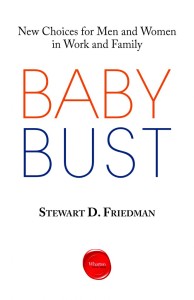A recent study points to the entrenched workings of pronatalism, this one with a sample of college students at Indiana University-Purdue University Indianapolis. Check it out.
Leslie Ashburn-Nardo, associate professor of psychology, conducted a study where 204 introductory psychology college students (a majority of whom were Caucasian) with an average age of 20 randomly read one of four versions of a paragraph about the life of an “alleged former student” after s/he had graduated. They then answered questions that pertained to the alumni’s “psychological fulfillment or adjustment” and the extent to which the alumni made them feel “disapproval, angry, outraged, annoyed and disgusted.”
Pronatalist Fulfillment Assumption
Ashburn-Nardo found that when the stories included that the alumni went on to not have children, s/he was “perceived as leading less fulfilling lives” than those who had children. This relates to what I call the pronatalist Fulfillment Assumption – that parenthood constitutes the ultimate path to fulfillment in life. The results suggest that the students in this study believe this notion. The truth, however – parenthood is but one path to fulfillment in life.
Pronatalist Destiny & Normality Assumptions
The study also indicates that “their decision to forgo parenthood…evoked moral outrage – anger, disgust, and disapproval.” The pronatalist assumptions behind these kinds of reaction include the Destiny and Normality Assumptions. The Destiny Assumption purports that we all are hard-wired to want children, and related to this, the Normality Assumption says that there is something wrong with us if we don’t want children. Both of these beliefs are also not truths. There is no real evidence to support the notion that everyone has a biological instinct for the desire to have children. And whether we are ‘normal,’ including things like having psychological health, adult maturity or a normal sense of identity does not depend on whether we become parents or not. Here too, the results sure suggest that the students in this study believe the myths, not the truths.
This may have been the “first empirical” study to look how people see parenthood as a “moral imperative” and feel “moral outrage” as a reaction to the childfree choice, but both have existed for centuries. A big influence comes from religion. For a very long time, the Church has perpetuated that not having children morally violates its dictums.
College Students in Another Study
Interestingly, in 2013, Baby Bust: New Choices for Men and Women in Work and Family by Stewart Friedman, summarizes a cross-generational study of college students. The Wharton Work/Life Integration Project at the Wharton School at the University of Pennsylvania surveyed 496 members of the 1992 Wharton undergraduate class, then surveyed 307 of the 2012 graduating class. The results: “stark discovery – the rate of college graduates who plan to have children dropped by nearly half over the past 20 years.”
I discuss details on takeaways here, and they include seeing other ways to find fulfillment in life, and changing perceptions about parenthood. Overall, the college-age people in this study in 2012 still seem to value parenthood, but it did not necessarily mean they will want to become parents. I would wager if these students had been asked questions about parenthood as a moral imperative their responses would have been different than what Ashburn-Nardo found in her study.
As I have written, in the big picture, I see the childfree choice gaining more levels of acceptance with each generation. It seems these two studies give us a glimpse into pronatalism’s continued dominant force, and the beliefs and self-reports of those in and around their college years.





